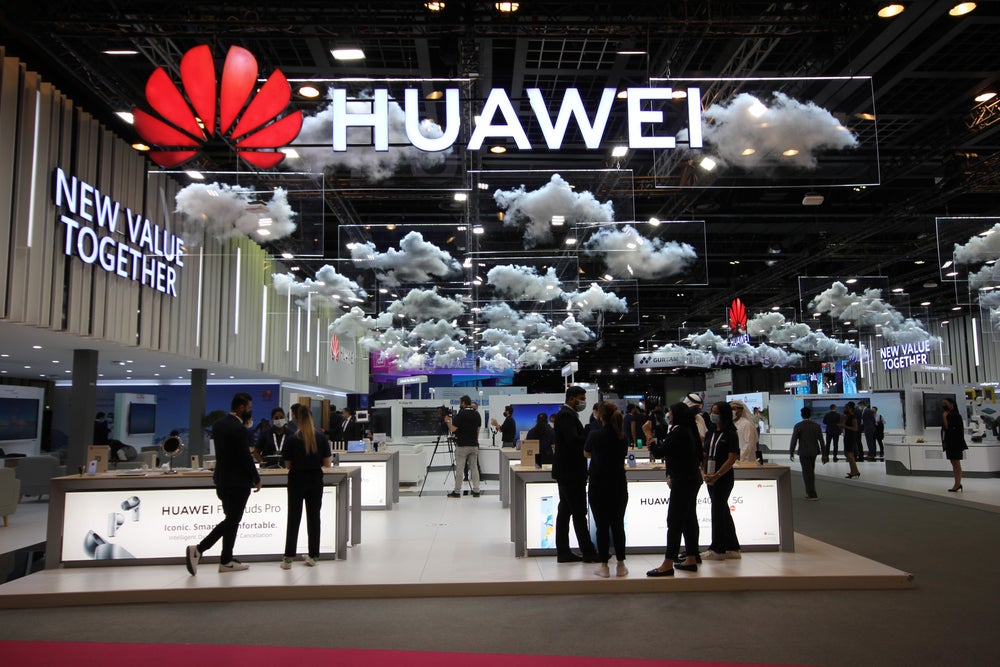
Huawei Connect was held in Shanghai (China) during September 2023, with GlobalData in attendance, and included several announcements where the company highlighted its mission of becoming a reference for AI.
This year’s event was the first in-person Huawei Connect held after the Covid-19 pandemic.
The vendor focused on AI as the mainstay of its strategy and reiterated its intentions to create an open ecosystem spanning the gamut from hardware, software, and services to cloud and edge computing. It publicly released its foundation model, Pangu, in August 2023.
During the keynote, Deputy Chairwoman Sabrina Meng explained how big foundation models are the most versatile tools in AI as they can be used as the base to build smaller customized models. According to Meng, the Pangu platform is growing fast, and Huawei’s engineers are placing significant effort to make it suitable for customers to leverage the foundation model and build their own sector-specific algorithms on top.
One such example is the Pangu model for weather forecasting, available on the website of the European Centre for Medium-Range Weather Forecasts (ECMWF). The site allows the general public to access weather forecasts for free, and the Pangu model provides global metrics as well as information about extreme weather events.
Huawei cites processing power capabilities as the main driving engine of AI
The company emphasized that computing and processing power are the engines driving AI. Hardware, software, and microchips, alongside components such as motherboards, computing clusters, and server systems for training and inference, act as building blocks for AI.
How well do you really know your competitors?
Access the most comprehensive Company Profiles on the market, powered by GlobalData. Save hours of research. Gain competitive edge.

Thank you!
Your download email will arrive shortly
Not ready to buy yet? Download a free sample
We are confident about the unique quality of our Company Profiles. However, we want you to make the most beneficial decision for your business, so we offer a free sample that you can download by submitting the below form
By GlobalDataHuawei went to great lengths to emphasize that its AI strategy is based on openness and collaboration and has stated that it has an ecosystem of 1,700 partners, including 30 partners for its Ascend hardware product family alone. The family of servers runs on the vendor’s own proprietary chipset technology, the Ascend microprocessor series, which includes the new Ascend 910 AI processor delivering 256 teraflops and based on Huawei’s Da Vinci architecture for neural network computing. The ecosystem includes the MindSpore AI computing framework that provides unified APIs across cloud to edge. This open-source framework uses a distributed architecture and leverages a native programming paradigm for AI.
GlobalData forecasts generative AI opportunity to reach $33bn by 2027
During one of the keynotes, David Wang, Executive Director and Chairman of the ICT Infrastructure Managing Board, emphasized that content generation has been a real inflection point for AI, driven by a fast uptake in more powerful computing capabilities. GlobalData forecasts the revenue opportunity for generative AI to grow from $1.8bn in 2022 to $33bnin 2027 at an impressive CAGR of 80%. The market potential lies on the growing customization of foundation models that will allow the application of generative AI technologies on specific vertical industries across a range of horizontal use cases.
Huawei also discussed its platform capabilities, including the launch of its new Atlas 900 SuperCluster. The computing cluster is part of Huawei’s Ascend series of products and is designed for training AI foundation models with over one trillion parameters. It is also based on the Xinghe Network CloudEngine XH16800 switch and can connect up to 2,250 nodes per cluster. The company uses the iFlytek platform, a community with four million developers, to build its large language models and announced a joint innovation project between iflytek and Huawei’s data center network to build an AI base based on super connectivity. iFlytek, known for its voice-recognition systems, has recently released its Spark AI model to the public. However, China requires companies to submit security assessments and receive clearance before AI products can be available for anyone to use.






Related Company Profiles
iFlytek Co Ltd